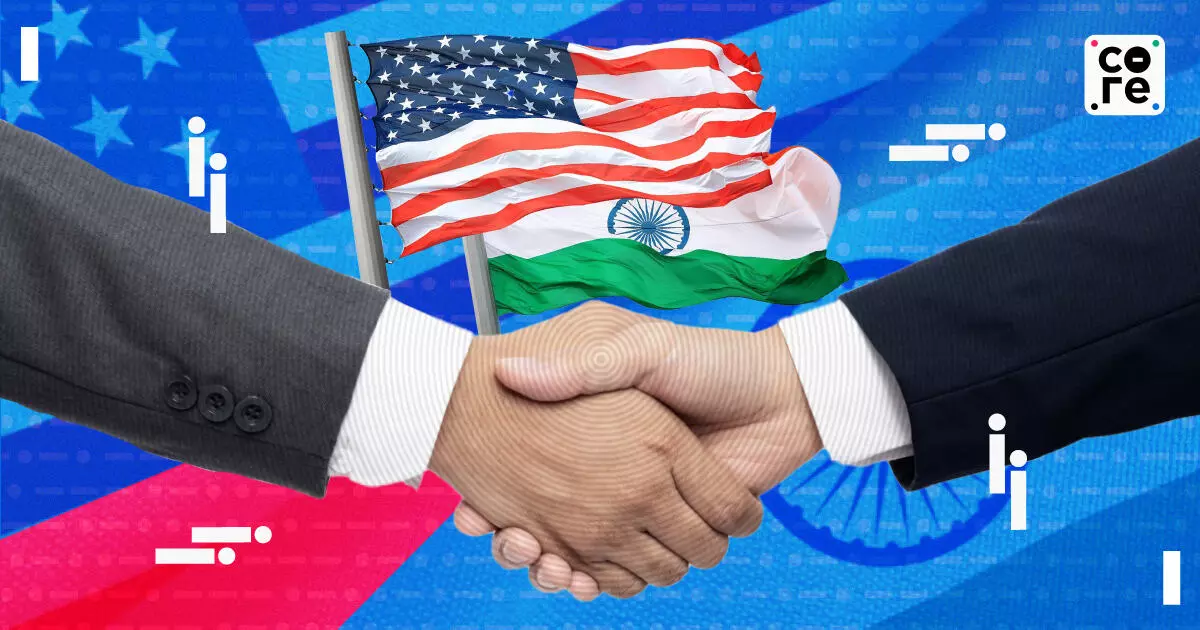
US Elections And India: Why Economic Realities Will Trump Political Rhetoric
India and the US have forged deep economic ties, as seen in the rise of Indian BPOs to GCCs. Despite the US elections and potential policy changes, the relationship remains robust, driven by India's talent and vast consumer market.

In the 1990s, if you walked around GE Capitals offices in Gurgaon, it would have been tough to imagine that the hundreds of young executives working night shifts there could be building the foundation of what would become one of the most powerful and unbreakable economic links between two countries, In this case, it was India and the United States. General Electric (GE) Capital was the financial services division of General Electric and has been subsequently sold off.
More than 25 years ago, senior GE executives like Pramod Bhasin and Raman Roy, who was often called the father of India's business process industry, created the architecture for an industry that has progressively employed millions even as it integrated in real-time with businesses in the United States and elsewhere in the Western world.
Artificial intelligence may take over many of those jobs today, but the early-stage business process outsourcing (BPO) revolution has already given way to the global capability centre (GCC) wave. GCCs are essentially the big brothers of the old BPOs, where companies set up entire offices or even campuses to allow their global operations to run smoothly. Think of them as mini-headquarters with a more focused approach. Today, there are over 1,700 GCCs in India, or captive centres for large multinationals, many in the USA. And there are almost two new ones being set up every day.
Corporations like chip-maker NVIDIA, whose founder-CEO Jensen Huang got a rock star reception two weeks ago during his India visit, first set up their development centres in Bangalore more than 20 years ago. As did Intel, GE, Cisco, Google, Meta, Oracle, and a host of other technology and non-technology companies expanding to Hyderabad, Chennai, and Delhi.
Even Apple's exports of made-in-India iPhones from the country have jumped by some 30% in the last six months, with exports touching $6 billion in this period, putting annual exports on track for $10 billion. On both products and services, India and the US are thus tightly linked, like never before.
This brings us to the elections in the US this week and what it could mean for India. The one thing about a tight race is that neither side's agenda is absolute.
Current US president Joe Biden did not really alter his predecessor Donald Trump's China policies and, if anything, over time, only further tightened controls on Chinese imports and trade.
Similarly, while the Biden administration has been lax on immigration over the last four years, the next four will see much tighter controls, whether Donald Trump or Kamala Harris becomes president because this issue resonates with voters.
Indian companies exporting to the United States could, in the worst case, see tariffs on products and clampdowns on H1B visas and the like. The larger point is this — the US is on an unprecedented economic growth path right now. So much so that the IMF in July revised upwards its GDP growth projections for the US from 2.6 to 2.8%. The previous decade saw less than 2% growth, incidentally.
The Economist, in its edition on October 19, points out that residents of America's poorest state of Mississippi, on average, earn more than the British, Canadians, or Germans. It also says that those who thought that China would have overtaken America by now as the world's biggest economy at current exchange rates have been proven wrong. China's GDP was around 75% of the US in 2021 and is now 65%.
All this may change later, but this is how it stacks up now. America is the largest producer of oil and gas in the world as well, and China is the largest importer of crude oil, followed by India.
The Economist said that an economy with an unemployment rate of 4% and a per-person GDP of $85,000 does not have to be made great again, it is great. India, like many other countries, will benefit from a strong US economy that is, of course, open to trade.
Remember, US stock markets which are pricing in a Trump victory are on an unstoppable bull run with all indices at record highs. Global markets tend to keep pace with Wall Street, even with some lags.
Despite Trump's exhortations of tariffs, it is difficult to believe that tariffs, even if imposed on countries like India, will be prohibitive. China might be a different story, of course. While more H1B visas might be tough, that will not fundamentally alter the power balance, at least for Indian IT companies who need them most.
The bottom line is that Indian and the US economies and businesses are very tightly interconnected. This process that began decades ago is only getting more entrenched even as America's biggest and most successful corporations tap into both the talent and the market that India offers. For the US, good economics will, sooner or later, make for good politics as well.
India and the US have forged deep economic ties, as seen in the rise of Indian BPOs to GCCs. Despite the US elections and potential policy changes, the relationship remains robust, driven by India's talent and vast consumer market.
Salman is a seasoned business journalist with over 10 years of experience covering consumer internet, startups, and the retail sector. He writes on the fascinating world of technology trends and the government policies that shape them, dissecting internet trends and their impact on society.

